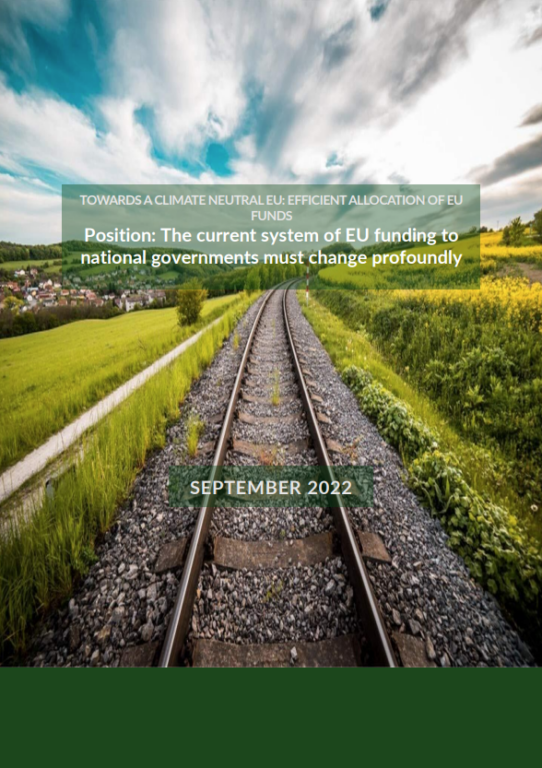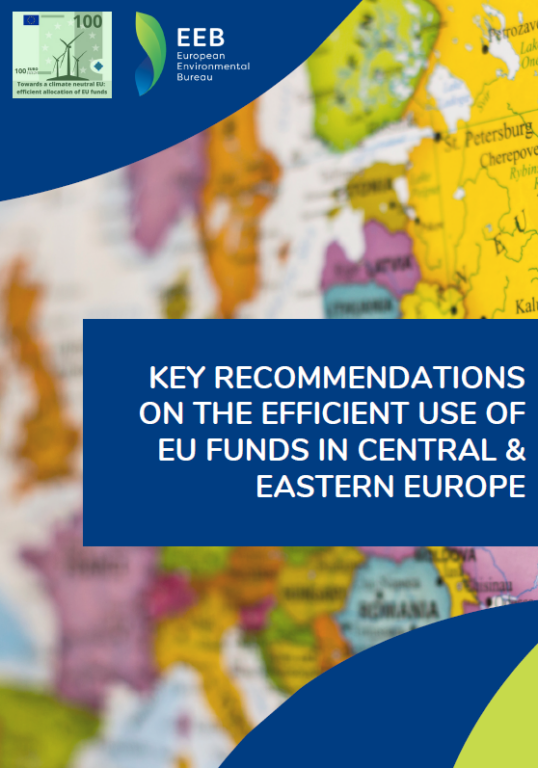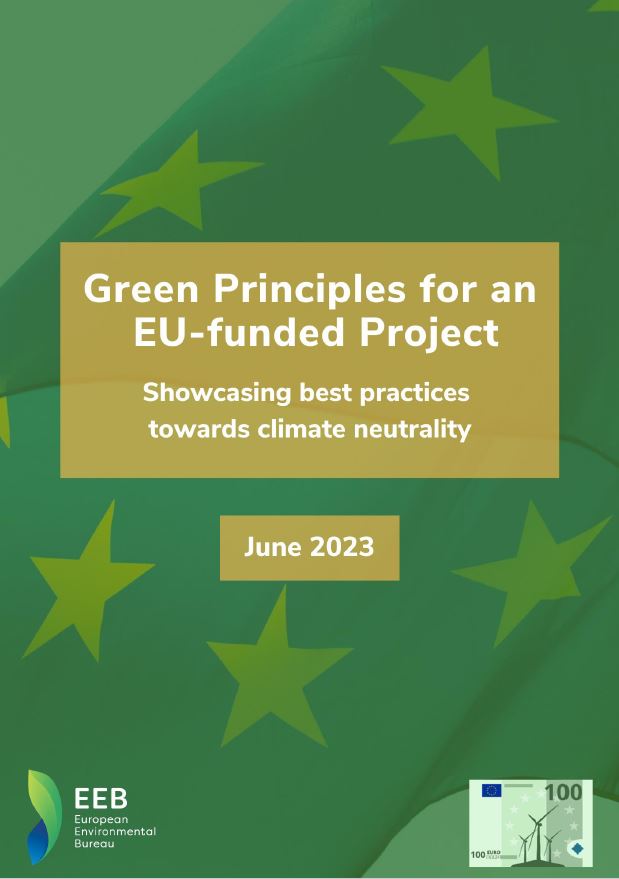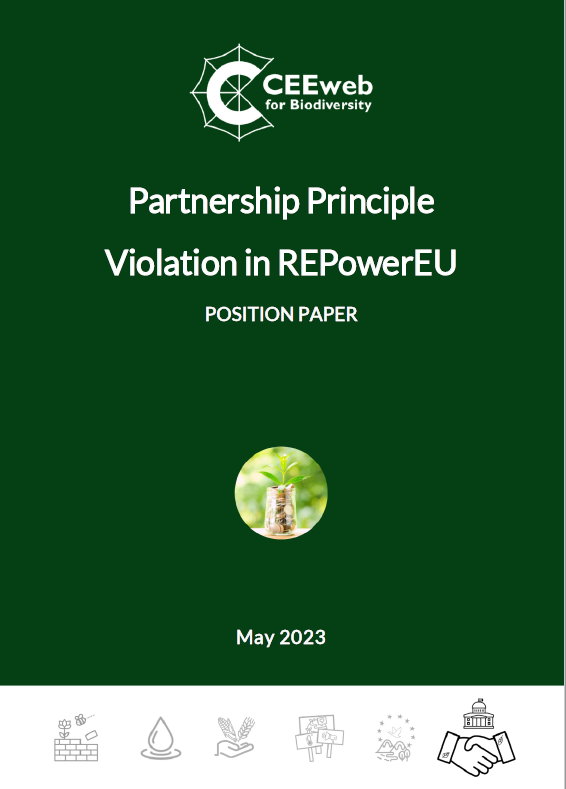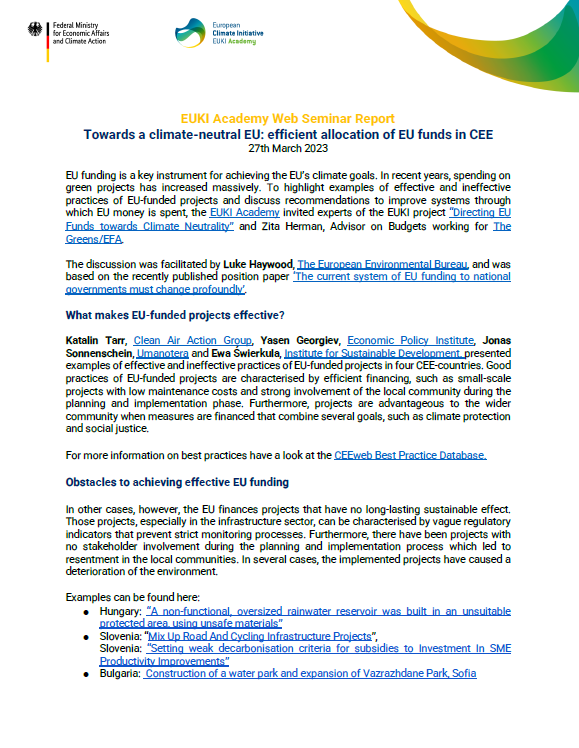Directing EU Funds towards Climate Neutrality
The project is completed. Ensuring that Partnership Agreements on EU Funds (PAs) and National Recovery and Resilience Plans (NRRPs) support the European Green Deal in Bulgaria, Romania, Hungary, Slovakia, Slovenia, Czech Republic, Poland, and Latvia.
Climate Policy Climate Strategies and Plans Finance
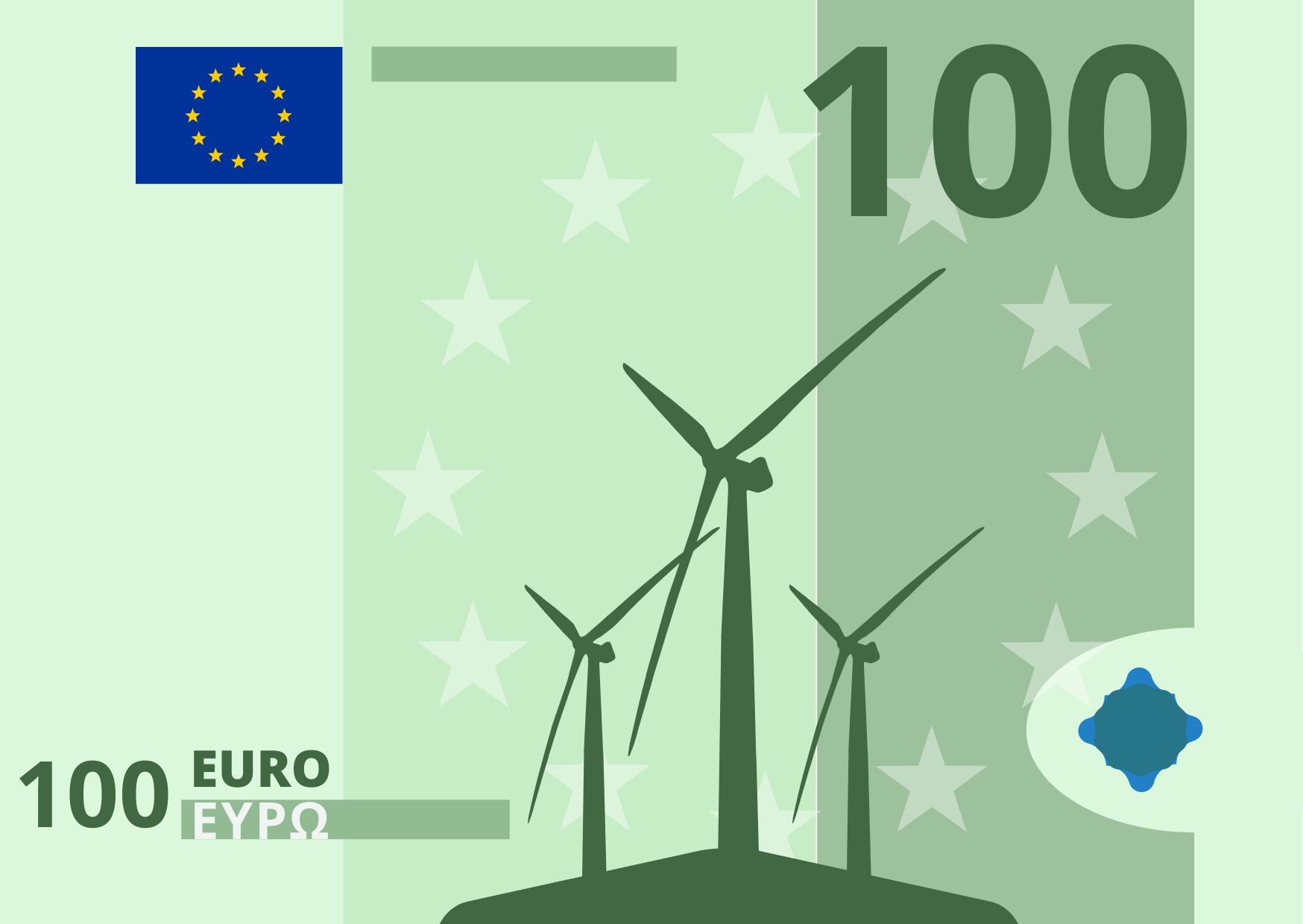
Project info
Bulgaria, Czech Republic, Hungary, Latvia, Poland, Romania, Slovakia, Slovenia
09/21 - 12/23
National governments, EU institutions, Civil society, Media
781,473.41 €
Contact info
Csaba Mezei
- Center of Transport and Energy
- Clean Air Action Group (CAAG)
- Economic Policy Institute (EPI)
- European Environmental Bureau (EEB)
- Focus Eco Center (Focus)
- Green Liberty
- Institute for Sustainable Development Foundation
- Slatinka Association
- Umanotera, The Slovenian Foundation for Sustainable Development
Background
The Multiannual Financial Framework (MFF) and the Recovery Resilience Facility (RRF) define the EU’s spending priorities for periods of seven years each. Their purpose is to transfer more abstract policy goals – such as climate targets – into economic realities, for example by additional investments in public infrastructure. The 2021-2027 MFF and RRF are crucial elements of ensuring the realisation of the European Green Deal. EU Member States have been preparing proposals for Partnership Agreements on EU Funds (PAs) and National Recovery and Resilience Plans (NRRPs) to inform the MFF and RRF. Yet, these documents are not sufficiently coherent with the European Green Deal and therefore prevent the targeted direction of EU funds toward climate neutrality.

Project
The project’s target group consisted of representatives of national and local governments, business groups, academia, civil society organisations, and media representatives in the project countries. Project activities enabled and encouraged them to initiate and engage in informed debates on climate policies and EU funds. First, project members offered trainings and workshops that provided knowledge on EU funding mechanisms and their relation to climate-neutrality. Second, the project team published best practice reports on climate-neutral use of EU funds as well as proposals for the national Operational Programs (OPs) in the target countries. Based on these activities, the project partners disseminated their findings and knowledge across EU institutions and the European public through newsletters, online articles, and social media. Furthermore, they reached out to decision makers on European, national, and local level through personal meetings, letters, calls and presentations on events. Thus, the project team encouraged them to access available and valuable knowledge and insights on climate-neutral use of EU funds and thus to contribute to implementation of the European Green Deal.
Results
- Umanotera organised a high-level national conference with international participation on the topic “Public finances for a green and just transition: risks and opportunities in Slovenia and the EU”. In the context of the conference, which hosted speakers from the EC, Climate Action Network Europe, Finance Watch, Oxfam EU, the Austrian and Slovenian Ministries for Finance and the University of Greenwich, several bilateral meetings were organised. Furthermore, Umanotera published the report “Towards a better use of EU funding for the green transition” with good and less good practices from Slovenia on how to use EU funds. The report is organised around six key lessons learnt and provides valuable information and inspiration for organisations implementing EU funded projects.
- The Centre for Transport and Energy continued its work on monitoring EU funds and their contribution to climate change. In cooperation with a data analyst, the Centre prepared a study examining the implementation of EU funds to date from a climate perspective and came up with the fact that overall and climate-focused spending of EU funds in the Czech Republic is relatively fragmented across many themes, which may reduce the Czech Republic’s ability to meet its climate commitments.
- Green Liberty studied 28 projects in Latvia that have were implemented using the public financing allocated by the EU. The analysis raised important issues about the efficiency of public financing from the climate point of view. Although there was no single answer, realisation of these projects lied somewhere from greenwashing to inspiring experiences of sustainable innovations. It was clear that every project, despite its status, could be improved to make it more climate-friendly and useful for society. Furthermore, the study indicated that Latvia must define its priorities and identify the areas in which coordinated approaches are most needed. By focusing on the most topical issues and allocating the resources accordingly, it can be ensured that public financing in the transport sector meets the climate goals better and serves the interests of the whole society.
Last update: July 2024

